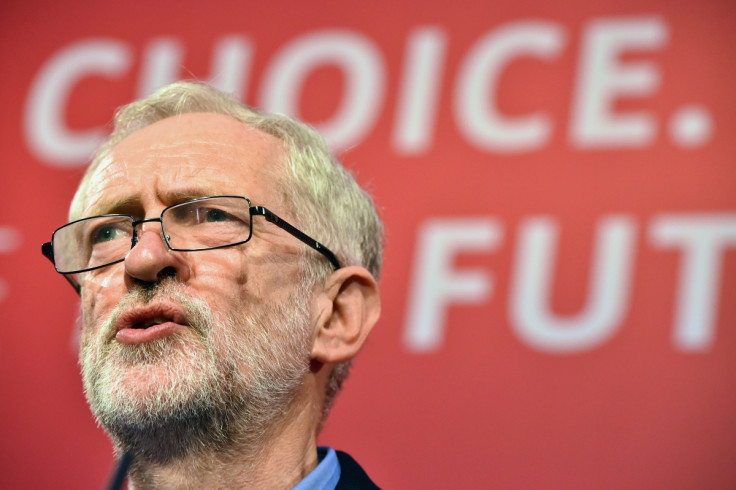How the world's press reacted to Jeremy Corbyn's victory in the Labour leadership election

It is not only in the UK that the landslide election of Jeremy Corbyn as leader of the Labour party made headlines. Around the world, the hard-left veteran's shock victory caused ripples, with reaction ranging from consternation to jubilation.
United States
In the US, commentators drew comparison between Corbyn's success and that of US political mavericks and presidential hopefuls Bernie Sanders and Donald Trump, who are in contention for the Democratic and Republican presidential nominations respectively.
In a time of economic insecurity and an anti-establishment mood among so many voters here and elsewhere, the unexpected is no longer unthinkable
"Some of the same forces that were instrumental in bringing Corbyn to power have powered Sanders's rise from a hopeless cause to a candidate who now leads Hillary Rodham Clinton in New Hampshire and in at least one poll in Iowa, and who has closed the gap with her nationally," noted Dan Balz in the Washington Post.
"In a time of economic insecurity and an anti-establishment mood among so many voters here and elsewhere, the unexpected is no longer unthinkable."
In the New York Times, economist Paul Krugman argued Corbyn's victory marked a rejection of moderate Labour leadership candidates' failure to challenge the government's austerity policies.
"Every candidate other than Mr Corbyn essentially supported the Conservative government's austerity policies," wrote Krugman. "The Corbyn upset isn't about a sudden left turn on the part of Labour supporters. It's mainly about the strange, sad moral and intellectual collapse of Labour moderates."
Argentina
President Cristina Kirchner hailed the election of Corbyn, who has advocated a joint Argentine/British government being formed in the Falklands, describing him as "the great friend of Latin America", reported Conservative Daily La Nacion.
In an interview with Telam, Argentine ambassador to the UK Alicia Castro alluded to the Falkland's dispute, arguing Corbyn's election would lead the UK public to realise it cannot "continue to refuse dialogue with Argentina". She said: "A leader with the human dimension of Corbyn can help improve the image of Britain in our country and in Latin America."
Europe
Corbyn has refused to rule out campaigning to leave the EU. Die Welt argued he was a "projection surface for the hopes and dreams who want to jump off the train of rapidly moving times," and warned the triumph of those like him left a hole in the centre ground of politics, in which "the moderate majority either abandon their faith in politics or adopt the other extreme as their voice".
At last we will have an ally in the United Kingdom with whom we share conclusions and a plan to defend social rights through policies that fight inequality
In Spain, though, Pablo Iglesias, the leader of Spanish populist anti-austerity, anti-EU movement Podemos, said Corbyn's victory was another indication that Europeans have had enough of the austerity policies of centrists, claiming it reflected the "the failure of social-liberalism".
"At last we will have an ally in the United Kingdom with whom we share conclusions and a plan to defend social rights through policies that fight inequality," Iglesias wrote in an opinion piece in centre-left newspaper El Pais.
Russia
Moscow daily Kommersant called Corbyn "the most pro-Russian politician in the UK since the end of the Cold War", and highlighted his opposition to Nato, his support for the Russian position on the Ukraine conflict and his preference for appearing on English language pro-Kremlin television station Russia Today.
Timothy Bancroft-Hinchey celebrated Corbyn's victory as a victory over Western political elites and argued in pro-Kremlin Pravda that his triumph would have "the Establishment on both sides of the Atlantic shaking in their boots".
"His policies go against the grain of government by proxy for the lobbies to which politicians today are connected and which place them in office or else close ranks around them when they are elected," he wrote.
Middle East
Corbyn has faced criticism for describing terrorist organisations Hamas and Hezbollah as "friends", and speaking alongside anti-Western Holocaust deniers and anti-Semites at pro-Palestine events.
Centre-left Israeli newspaper Haaretz argued Corbyn's election shows how little the UK electorate cares about foreign policy. "At heart, he is a full-paid member of every fashionable cause of the radical-left, including his unquestioning support for Holocaust deniers and blood libellers – as long as they're 'pro-Palestinian'," Anshel Pfeffer said.
BBC Monitoring reported that pro-Hamas website Al-Risalah described Corbyn thus: "He is one of the most prominent British figures who voiced solidarity with the Palestinian cause and declared his rejection of the war on Gaza."
© Copyright IBTimes 2025. All rights reserved.






















